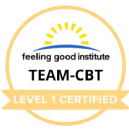Life Adjustments and Transitions Therapy in Toronto
Every person experiences life transitions throughout life. From major events – getting a new job or losing a job, going through a divorce, or retiring – to more subtle shifts such as moving to a new home or experiencing shifts in family dynamics.
Life transitions are periods of change where you move through life stages and experience different emotions, relationships, and/or circumstances. It can be a difficult time for many if not most.
What Are Life Adjustments and Transitions?
Life transitions can be defined as events or changes which bring about a shift in your expectations, beliefs, responsibilities, identity, roles.
Life transitions can be physical, emotional, or relational. These transitions manifest in many different forms. While some life transitions are more anticipated than others, they all come with their own unique set of struggles.
Some typical life transitions include:
- Loss of a job
- Divorce or relationship break-up
- Retirement
- Moving to a new home
- Change in family dynamics
- Serious illness or injury
- Children moving out
- Career changes
- Loss of a loved one
As with any life transition, it is the emotions and thoughts that can be challenging to navigate.
Feelings of loss, confusion, insecurity, and overwhelm are common, as are thoughts of self-doubt, insecurity, and fear.
It’s normal to experience these emotions and thoughts, but if they persist, therapy can be an effective way to help you cope with a life transition.
No matter what kind of transition you may be facing, therapy can be extremely helpful in learning how to cope.
Did you know?
In 2020, the Journal of Applied Psychology discussed how life transitions, despite their challenges, can offer opportunities for self-discovery and personal growth.
Life Transitions Treatment Options
Different life transitions can require different strategies or approaches. For instance, a significant move may require strategies to cope with the stress of relocation, while a job change may necessitate strategies to manage anxiety associated with finding a new job or dealing with fear of the unknown.
Other life transitions may require work on developing resilience and handling emotions better which can help you better cope with the changes.
Some of the approaches that can be used when dealing with life changes include:
- Cognitive Behavioral Therapy (CBT)
- Grief Therapy
- Acceptance and Commitment Therapy (ACT)
- Mindfulness Therapy
Life Transitions Therapy Plans at Get Reconnected Psychotherapy Services
We offer a safe, judgment-free space to talk and express feelings, as well as receive support and guidance. Our approaches depend on your specific needs.
We can help with:
- Developing healthy coping strategies and tools
- Help with stress management
- Help set realistic goals and expectations
- Supporting you in getting through life transition
In therapy, we aim to help you gain a better understanding of the challenges and changes that you are facing and develop healthier and more effective coping strategies to navigate life changes.
For more information about our approaches, please contact us at [email protected]
Let’s start this journey together. With the right support and tools, you can not only survive but thrive through life’s transitions. After all, every plot twist leads to a new chapter, and every chapter is an opportunity for a fresh start. Let’s turn the page together.
When you’re ready, book a free consultation with us to see if we are a good fit for you.
Our Team
Blog

Preparing For Your Therapy Consultation: 6 Tips
Tips on What to Look For in A Free Consultation Looking for a therapist can be nerve wrecking because you might be struggling with something,

Two-Week Wait After IVF: 13 Tips To Survive the Toughest Part of Fertility Treatments
If you’ve been trying to get pregnant for a while and recently went through IVF, you know that waiting to find out if it worked

Burnout Vs. Depression: Exploring the Difference
Burnout Vs. Depression: Exploring the Difference Have you ever felt so tired, with a sense of not caring about anything, not enjoying the things you
Ready for Therapy?
We’ll use what we learn in our first session to make a plan that’s just for you.
For more information about our approaches, don’t hesitate to get in touch with us at [email protected]








